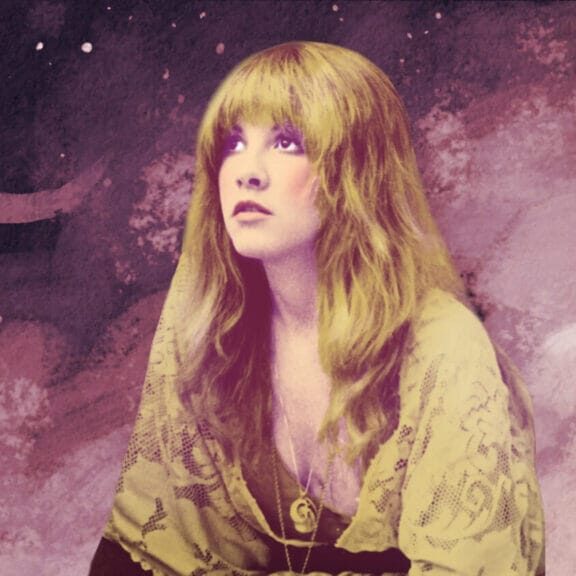
The girl’s magical thinking—a love letter to Stevie Nicks
Turning to Simone de Beauvoir to examine why we’re so into horoscopes
This semester I have embraced my obsession with the representation of women in writing as an academic pursuit. Consequently, my days are veiled in a mystic philosophical daydream coincidentally aligned with the subjects I explore in the Councelle. Namely, the mind of the girl.
One of the texts I have studied so far this term is an infamous chapter from the so-called “feminist bible,” The Second Sex, in which philosopher Simone de Beauvoir explains girlhood as a tumultuous period in which puberty eventually robs the girl of her freedom. In Beauvoir’s view, this loss of freedom inflicted by the female body (ie. menstruation, tender breasts, emotional variability, etc.) imposes an alienating effect on the girl, restricting her ability to play with other children.
It also makes her a liar.
What starts as hiding menstrual products and writing in diaries evolves into a much larger structure of secrecy embedded in the girl’s mind, birthing a rich inner life of fantasy and daydreams. And this observation still manifests 75 years after Beauvoir wrote it. Stevie Nicks transports us to this state of reverie in many of her songs, painting a relatable picture of her inner world as that of an elusive gypsy illuminated by the sights and sounds of powerful storms. To prove the relatability of this idea, here is an anecdote I think a lot of you will relate to.
It’s middle school. You’ve just returned home from a long day in the thick jungle of insecurity and pubescent hormones. The only light on your horizon has been the promise of re-entering your “cave” as your dad unironically calls it, and whipping up the most thrilling scenario in your head to fall asleep to. As much as we can all criticize middle school, you have to admit, these perfect little moments you shared with your crush of the week in the safety of your mind were pretty epic.
Beauvoir philosophizes this “magical thinking” as a characteristic of girlhood misdirecting our natural inclination to act away from engaging with inequalities in public life. Despite her magical descriptions of the girl’s rich inner life, her outlook is ultimately negative. Since the dream world I crafted for myself got me through a particularly challenging phase of life, this conclusion just doesn’t sit right with me.
Instead of perceiving the girl’s daydreaming as merely a trivial escape from the confines of patriarchy, I like to think of her magical thinking as a kind of superpower that can extend to womanhood if one lets it. Here are a few reasons why.
1. Horoscopes and other appeals to the universe
Women typically know their zodiac sign. Hell, a lot of them know their whole astrological profile. What’s that about? The Second Sex tells us this is a misdirected attempt to regain a semblance of control, and I don’t entirely disagree. However, in applying my optimistic feminist philosophy, I have a slightly more uplifting take.
We’ve all seen the trope in movies or TV shows of the horoscope-obsessed woman who makes life decisions based on how their shaman tells their fortune. I’m thinking of Rose Weissman in The Marvelous Mrs. Maisel. However, I have not met one woman who seriously practices this. In today’s world, I think horoscopes have become a catalyst for community among women. I could even pull up a text I received today from my sister about the return of her Saturn. I was just happy she reached out.
What I have seen practiced by other women, and even occasionally partake in myself, is manifestation. Writing down what you want to happen in your life and putting it out there to the powers that be in less metaphysical language is just believing. When you believe, you are likely to act subconsciously in favour of that outcome. What’s misdirected about that?
2. Stevie Nicks
This homage to Nicks is really paying tribute to my grade 10 self who needed her guidance, but Nicks could be swapped with any female artist whose lyrics instill a sense of belief in you that things might turn out okay. Thank you for your beautiful words and mystic imagery Nicks, your magical thinking served me well.
3. Transforming objectification into self-love
Stick with me here. Beauvoir says that in puberty, the girl comes to terms with her objectification in society, which results in what she calls “narcissism,” and what I call self-love. Remember those rare blissful evenings in middle or high school when you happened to not be drenched in self-loathing, and danced around your room in moody LED lighting, entranced by your own body’s appearance in the mirror? That right there is the recognition of your body as an object of your own desire. Embrace it.
*This article was edited to fix a spelling error. The article initially spelled the word “swapped” as “swamped.”






